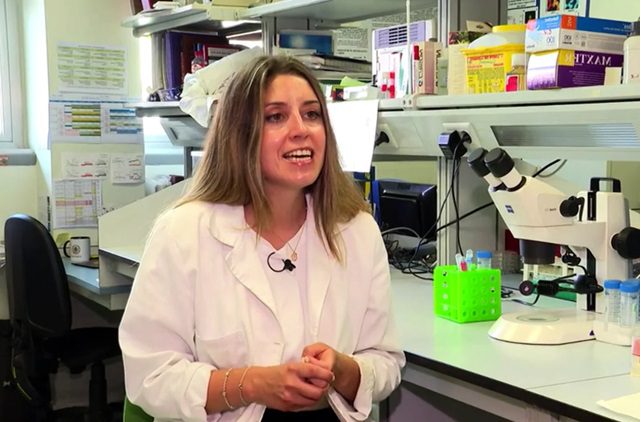BTN News: In science, breakthroughs are often hard to come by, and the journey can be full of challenges. Sara López, a researcher at the University of Valladolid’s Institute of Biomedicine and Molecular Genetics, understands this well. “In science, things usually don’t work out,” López says. Despite these challenges, her hard work and dedication have led to some exciting discoveries in the fight against diseases like Alzheimer’s.
López has earned the nickname “the cable girl,” which she enjoys because it reminds her of her favorite TV show. Her work focuses on studying how calcium inside cells communicates with neurons. When this communication goes wrong, it can create “death neurons,” which then destroy other neurons around them. López’s research aims to understand these calcium signals and how they cause neurons to die.
López is working on her doctoral thesis about intracellular calcium, under the guidance of her advisors, Carlos Villalobos and Lucía Núñez. They are studying the “messages” that calcium sends when the protein Aβ is present. Aβ, or beta-amyloid, forms clumps between neurons and is a major factor in Alzheimer’s disease. When this protein appears, calcium sends deadly messages to neurons. López’s goal is to find substances, called neuroprotectors, that can protect neurons from these harmful messages.
López has found two effective neuroprotectors so far. These substances come from the root of a wild plant found in Brazil. Although it is hard to get these molecules from the plant, they can be made chemically in a lab. This means they can be modified to be more easily absorbed by neurons. This discovery could lead to treatments that protect neurons from the damage caused by Alzheimer’s.
Currently, Alzheimer’s disease, like many other brain diseases, cannot be cured. However, López’s research brings new hope. By understanding and controlling the messages sent by calcium when beta-amyloid is present, we might develop treatments to keep neurons healthy.
López believes it is important to share research findings with the public. “Sharing our work is a duty of scientists,” she says. Scientific research is often funded with public money, so scientists should give back to society by sharing their discoveries. López thinks that even complex topics can be explained in simple ways so everyone can understand. She has won awards for her science communication skills, showing her dedication to making science accessible to all.
The importance of Alzheimer’s research is clear from data provided by the Pasqual Maragall Foundation. Alzheimer’s is a major health concern for people in Spain, second only to cancer. This highlights the need for funding and public awareness of ongoing research.
Sara López’s work shows the relentless pursuit of knowledge in the face of tough challenges. Her innovative research on calcium signaling and neuroprotection holds promise for future Alzheimer’s treatments. Through hard work and a commitment to both science and public communication, López is paving the way for advancements that could change how we treat neurodegenerative diseases. Her work gives hope to millions affected by Alzheimer’s, showing that there is a potential path forward.


